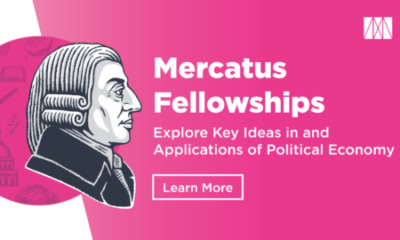Science
Scientists Introduce Generative AI Model to Tackle Tough Diseases

On October 30, 2023, a significant breakthrough in medical research was presented during a seminar at the Abdul Latif Jameel Clinic for Machine Learning in Health, located at the Massachusetts Institute of Technology (MIT). The event showcased the debut of a new generative AI model named BoltzGen, aimed at creating molecules to address hard-to-treat diseases. More than 300 attendees from both academia and industry gathered to hear about this innovative development.
At the forefront of the seminar was Hannes Stärk, a Ph.D. student at MIT and the lead author of the BoltzGen project. Just days before the seminar, Stärk had announced the existence of BoltzGen, generating considerable excitement within the scientific community. The model utilizes advanced algorithms to explore vast chemical spaces, potentially leading to discoveries of new therapeutic options.
The implications of BoltzGen’s capabilities are considerable. Traditional methods of drug discovery can be slow and costly, often taking years to identify viable compounds. BoltzGen, however, leverages machine learning to accelerate this process, predicting molecular properties and synthesizing candidates more efficiently. This shift could significantly shorten the timeline for developing treatments for diseases that currently lack effective solutions.
During the seminar, Stärk elaborated on how BoltzGen integrates data from various sources, including existing molecular databases and clinical research findings. This comprehensive approach allows the AI model to not only generate new molecules but also predict their effectiveness and safety profiles. The potential for transformative impacts on drug development has captivated researchers and industry leaders alike.
Collaboration Across Disciplines
The BoltzGen project highlights the importance of collaboration between computational scientists and biologists. By combining expertise from diverse fields, researchers can create more robust models capable of addressing complex biological challenges. The seminar included discussions on the model’s validation process and how it could be adapted for various disease targets.
Following the presentations, the audience engaged in a lively question-and-answer session, where attendees expressed interest in the model’s applications. Many participants noted the potential for BoltzGen to facilitate personalized medicine, tailoring treatments to individual patient profiles based on genetic information.
The event underscored a growing trend in the medical field: the increasing reliance on artificial intelligence and machine learning technologies to enhance research and innovation. As the intersection of technology and healthcare continues to evolve, projects like BoltzGen are at the forefront of this transformation.
In summary, the launch of BoltzGen represents a pivotal moment in the quest for new medical treatments. With its ability to generate novel molecules for hard-to-treat diseases, this generative AI model could revolutionize the drug discovery process, offering new hope to patients worldwide. As research progresses, the scientific community eagerly anticipates the outcomes of this groundbreaking initiative.
-

 Technology5 months ago
Technology5 months agoDiscover the Top 10 Calorie Counting Apps of 2025
-

 Technology2 weeks ago
Technology2 weeks agoOpenAI to Implement Age Verification for ChatGPT by December 2025
-

 Health3 months ago
Health3 months agoBella Hadid Shares Health Update After Treatment for Lyme Disease
-

 Health3 months ago
Health3 months agoAnalysts Project Stronger Growth for Apple’s iPhone 17 Lineup
-

 Health3 months ago
Health3 months agoErin Bates Shares Recovery Update Following Sepsis Complications
-

 Technology5 months ago
Technology5 months agoDiscover How to Reverse Image Search Using ChatGPT Effortlessly
-

 Technology3 months ago
Technology3 months agoElectric Moto Influencer Surronster Arrested in Tijuana
-

 Technology2 months ago
Technology2 months agoDiscover 2025’s Top GPUs for Exceptional 4K Gaming Performance
-

 Technology5 months ago
Technology5 months agoMeta Initiates $60B AI Data Center Expansion, Starting in Ohio
-

 Technology5 months ago
Technology5 months agoRecovering a Suspended TikTok Account: A Step-by-Step Guide
-

 Health5 months ago
Health5 months agoTested: Rab Firewall Mountain Jacket Survives Harsh Conditions
-

 Lifestyle5 months ago
Lifestyle5 months agoBelton Family Reunites After Daughter Survives Hill Country Floods





















